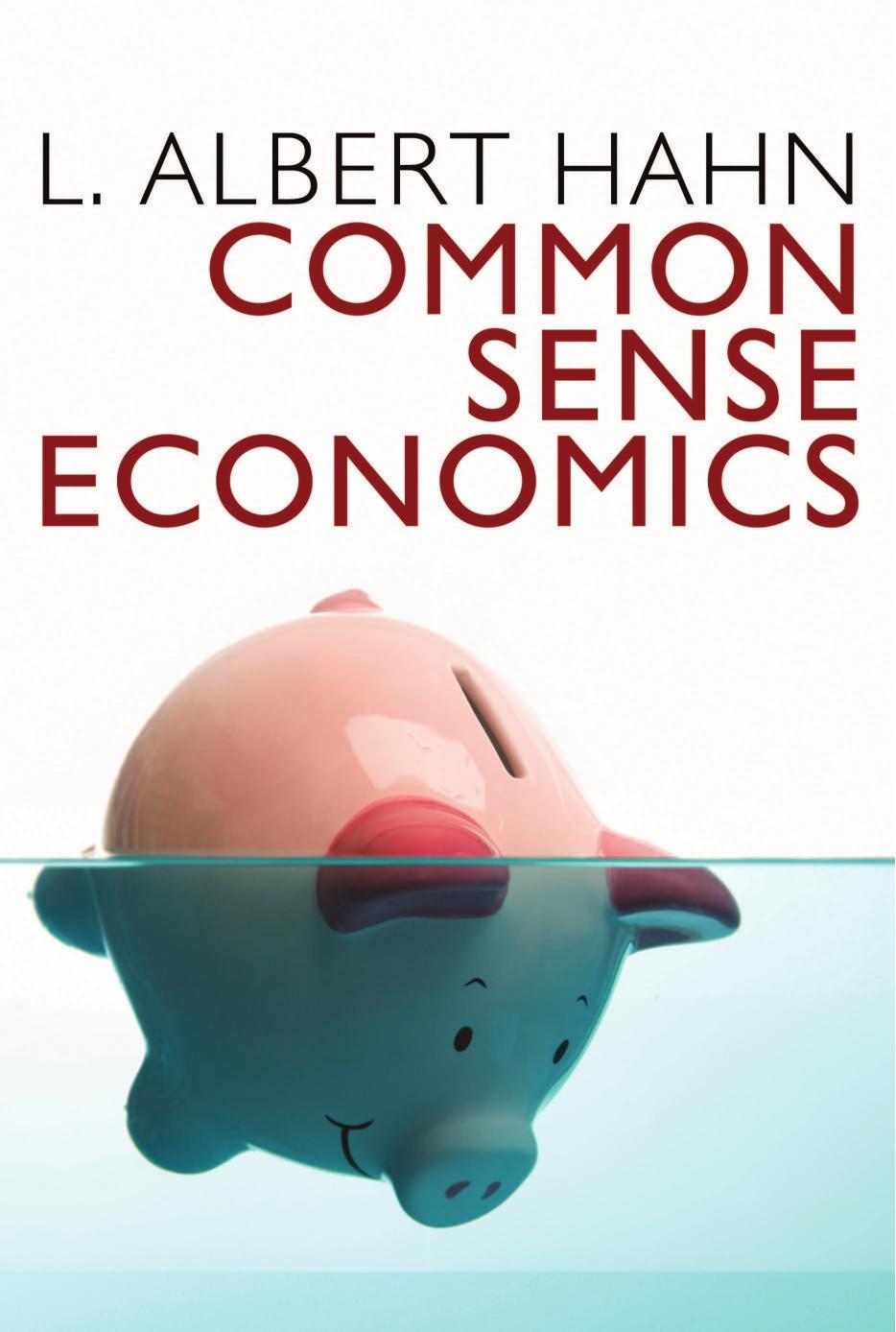Common Sense Economics by L. Albert Hahn

Author:L. Albert Hahn [Hahn, L. Albert]
Language: eng
Format: epub, pdf
Publisher: Ludwig von Mises institute
Should Increased Productivity he Met by Inflationary Credit Expansion?
We have already touched this question (see: Wage and Price Level and Increase in Productivity—pp. 95 and 96) and would add here the following:
If productivity increases—following technical progress or increased capital investments—within the framework of a totally inelastic money circulation, as presupposed in Part II, prices will of course sink because an increased production meets an unchanged monetary demand. Wages remain stable. In this case the advantages of increased productivity are shared by all sections of the population, including recipients of rents and fixed salaries, and owners of monetary claims.
This method of coping with the problem of increased productivity has the disadvantage, as already mentioned, of inflicting losses on those who hold inventories and durable capital goods. The consequences of such losses on the anticipations of entrepreneurs should not be overrated, however. Entrepreneurs are influenced in their decisions less by losses in the past than by anticipation of profits in the future. As prices have not fallen more than costs they won't curtail production, except if they assume that productivity increase—and thus falling prices—are a permanently repeating phenomenon.
A much more important difficulty follows from the fact that labor leaders prefer to fight for a raising of money wages in accordance with increased productivity rather than for a lowering of consumer prices. This is quite understandable, first, because when money wages are raised the increased productivity benefits only labor; second, because the success of unions appears much more impressive if wages are raised in monetary rather than in real terms.
If entrepreneurs are induced to pay higher wages in accordance with increased productivity, the prices of the increased products have to be prevented from sinking, for if wages are pushed up in the face of sinking prices, unemployment must ensue.
The only way of supporting the price level is by increasing monetary demand through inflationary credit expansion. This inflationary credit expansion, while supporting the price level, will, however, not raise it because the increased money circulation meets a supply of goods that has been increased through the higher productivity.
Such an “inflation without inflation”—which, incidentally, should not be confused with the “volume prosperity” which develops in the first phase of a business cycle, as described later (pp. 177–178)—is in general considered harmless in every respect. The question whether this is correct is of the highest importance at present.2
Those who consider an “inflation without inflation” to be harmless overlook the fact that productivity increases mean profit increases for the entrepreneurs as long as costs—for labor as well as for capital—are not fully raised accordingly. It does not make any difference whether profits rise because prices rise or because costs decline by increase of productivity. The result is, or can be, in both cases the beginning of a cumulative process. Cumulative processes to the upside break down sooner or later and are followed by depressions—as we shall see later when the business cycle is described—if only because every stimulus finally exhausts itself. Through an energetic raising of discount rates such cumulative processes can be prevented.
Download
This site does not store any files on its server. We only index and link to content provided by other sites. Please contact the content providers to delete copyright contents if any and email us, we'll remove relevant links or contents immediately.
International Integration of the Brazilian Economy by Elias C. Grivoyannis(111059)
The Radium Girls by Kate Moore(12028)
Turbulence by E. J. Noyes(8049)
Nudge - Improving Decisions about Health, Wealth, and Happiness by Thaler Sunstein(7706)
The Black Swan by Nassim Nicholas Taleb(7129)
Rich Dad Poor Dad by Robert T. Kiyosaki(6632)
Pioneering Portfolio Management by David F. Swensen(6300)
Man-made Catastrophes and Risk Information Concealment by Dmitry Chernov & Didier Sornette(6019)
Zero to One by Peter Thiel(5801)
Secrecy World by Jake Bernstein(4753)
Millionaire: The Philanderer, Gambler, and Duelist Who Invented Modern Finance by Janet Gleeson(4478)
The Age of Surveillance Capitalism by Shoshana Zuboff(4292)
Skin in the Game by Nassim Nicholas Taleb(4248)
The Money Culture by Michael Lewis(4207)
Bullshit Jobs by David Graeber(4190)
Skin in the Game: Hidden Asymmetries in Daily Life by Nassim Nicholas Taleb(4006)
The Dhandho Investor by Mohnish Pabrai(3764)
The Wisdom of Finance by Mihir Desai(3746)
Blockchain Basics by Daniel Drescher(3582)
